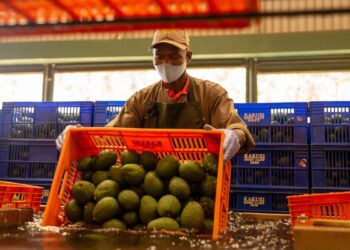The Michuki Polytechnic Russian language programme launch marks a groundbreaking partnership with a prominent Russian NGO, aiming to equip Kenyan youth with fluency in one of the world’s most strategic tongues. Michuki Technical Training Institute, nestled in Kiambu County’s bustling industrial hub, unveiled the initiative Friday morning in a colourful ceremony attended by diplomats, educators, and eager students ready to dive into Cyrillic scripts and Slavic sounds.
The collaboration with the Russkiy Mir Foundation promises free classes, cultural exchanges, and job pathways tied to growing Kenya-Russia ties in the energy, mining, and security sectors.
Principal Jane Mugwe beamed as she cut the ribbon on the new language lab, fitted with smart boards and headsets donated by the foundation. “This Michuki Polytechnic Russian language programme opens doors our youth never imagined,” she told the gathering, her voice echoing off freshly painted walls.
“From nuclear tech at Konza to oil deals in Turkana, Russia is a partner on the rise. Speaking their language isn’t just academic; it’s economic empowerment.”
The first cohort of 150 students, drawn from hospitality, engineering, and business courses, starts lessons next week, blending grammar drills with vodka-free toasts and balalaika playlists.
The Russkiy Mir Foundation, a Moscow-backed outfit promoting Russian culture globally, flew in director Elena Petrova for the event. Clutching a matryoshka doll gift for Mugwe, Petrova hailed the tie-up as “a bridge between African ambition and Eurasian opportunity.”
She revealed plans for scholarships sending top performers to Moscow State University and internships at Rosatom projects in the region. “Kenya’s youth are vibrant and hungry for knowledge. Teaching them Russian here plants seeds for lifelong friendships,” Petrova said through a translator, drawing cheers from students waving miniature flags of both nations.
For learners like 21-year-old mechanical engineering student Kevin Mwangi from Murang’a, the appeal is practical. “I’ve heard Russian firms pay well and don’t mind training fresh graduates,” he shared over tea after the launch, practising his first “privet” greeting.
Mwangi dreams of working on the Lamu Port rigs where Russian contractors scout talent. Classmate Mercy Wambui, 19, studying tourism, eyes guiding Slavic visitors to Maasai Mara safaris.
“English and Swahili are great, but adding Russian? That’s next-level hustle,” she laughed, snapping selfies with Petrova. The programme arrives amid warming bilateral relations.
Trade between Kenya and Russia hit Sh45 billion last year, fuelled by wheat imports and fertiliser deals that eased 2023’s food crisis. Konza Technopolis hosts Russian IT firms, while Rosgeo explores minerals in Western Kenya.
Critics whisper of soft-power plays, but Mugwe dismisses them: “We’re not picking sides; we’re picking skills. Chinese, German, now Russian – the more languages, the merrier the opportunities.”
Local leaders endorsed the move. Thika MP Alice Ng’ang’a, guest of honour, pledged county bursaries for top performers. “In a global village, monolingual youth get left behind,” she quipped, posing for photos with students clutching new textbooks titled “Russian for Kenyans”.
As the sun dipped behind Thika’s pineapple fields, first-year students lingered in the lab, headphones on, repeating phrases like “Ya lyublyu uchit’sya” – I love to study.
For Michuki Polytechnic, the Russian language programme launch isn’t just curriculum expansion; it’s a bet on tomorrow’s geopolitics, where a “da” in Moscow might echo as a “ndio” to prosperity back home. With enrolment already oversubscribed, the Cyrillic wave has only begun crashing on Kenyan shores.















